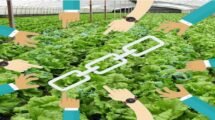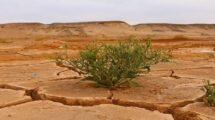The Central Marine Fisheries Research Institute’s (CMFRI) Ernakulam Krishi Vigyan Kendra (KVK) has proven the technology of cleaning harvested banana plants to nurture the soil’s bio-fertility.
KVK introduced to the farmers a device that shreds the leftover stems into tiny bits, allowing them to dissolve in the soil and be composted. According to the KVK, the process cleans fields and prepares them for the following crop while also increasing the organic content of the soil.
Farmers can now get benefited from free precision farming advice from remote sensing
‘Normally, after harvest, the stems in banana plantations are abandoned, creating a breeding environment for many parasites and hampering the next crop. By shredding it into tiny bits soon after harvest, we not only make it easily dissolved in soil, but we also clean the farm,’ said Shinoj Subramanian, Head of KVK, adding that the shredded parts will be composted for organic manure in the future.
Riches derived from waste
30 tonnes of banana stems are produced by a one-acre banana plantation field. Using the tractor-operated waste shredder, up to 4 tonnes of biomass might be transformed into tiny fragments in one hour, according to KVK technology. ‘When properly composted banana biomass from one-acre areas is used in situ, it can increase organic matter by 0.1 to 0.2 % chemical fertilizer requirements by 16 %,’ Subramanian added.
Cereals are harvested grasses and while pulses are leguminous
KVK showcased this technique in conjunction with the Central Government’s Swachh Bharat Abhiyan’s flagship campaign, ‘creating money from the trash.’ KVK is also looking at making fodder for dairy animals out of leftover banana stems.


















Add Comment